For Wastewater Emergencies call, 512-218-5555, 24 hours a day, 7 days a week.
When it goes down the drain, it’s gone for good, right? Wrong. Whether you use the toilet or the sink, it all flows through the same sewer line in your home. While wipes and grease may “disappear” when flushed or poured down the drain – they do not dissolve fast enough to flow through the system like toilet paper. They build up in pipes and block your sewer line.
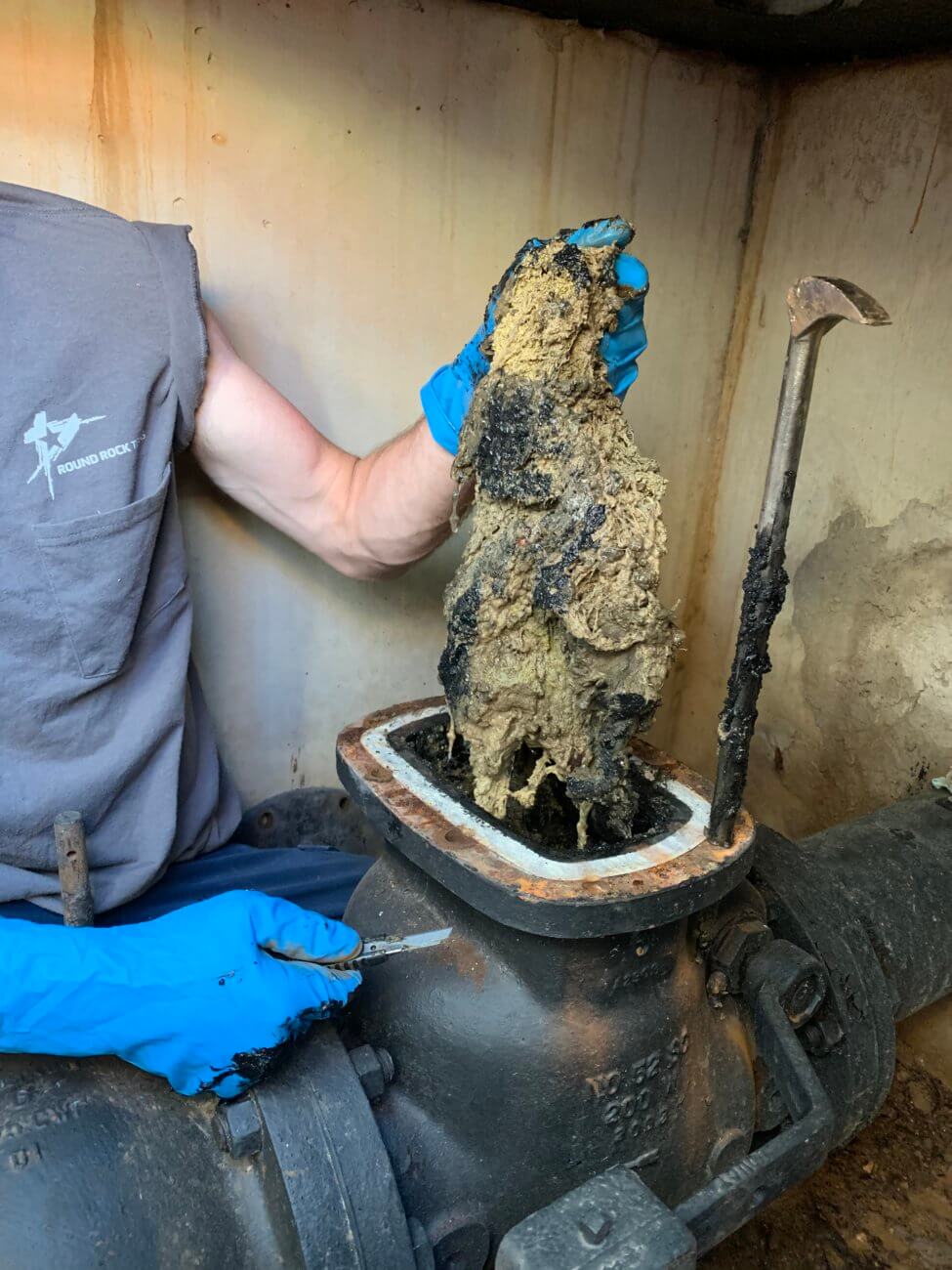
Every day the City of Round Rock removes thousands of pounds of wipes, grease, and other problematic material from the system.
These materials do not break down before reaching the treatment plant. They get lodged in equipment and pipes, clogging up the system and damaging pumps and equipment. This results in higher water costs for customers because of the constant maintenance and more frequent equipment replacement.
Don’t Stop the Flow
Wastewater treatment technologies and processes are designed to break down bodily waste and toilet paper ONLY.
If it Can’t Flow, it Overflows
An overflow is a very nasty, costly mess that has to be cleaned up and paid for immediately. This can be devastating to property owners, renters, and businesses as these expenses are generally not covered by homeowner’s insurance.
Overflows result in:
- Property damage
- Plumbing problems
- Nasty cleanup
- Replacement of material goods
- Health issues
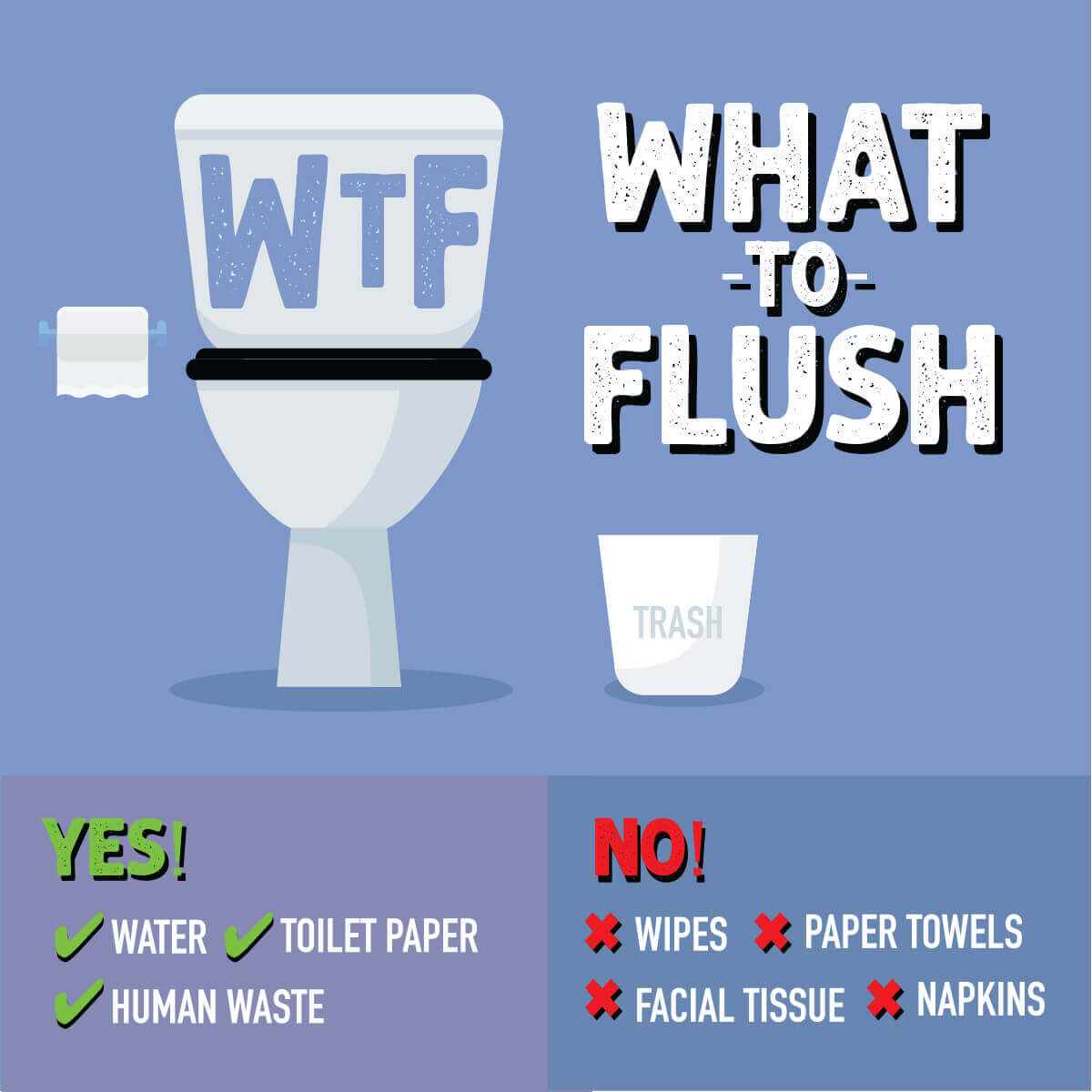
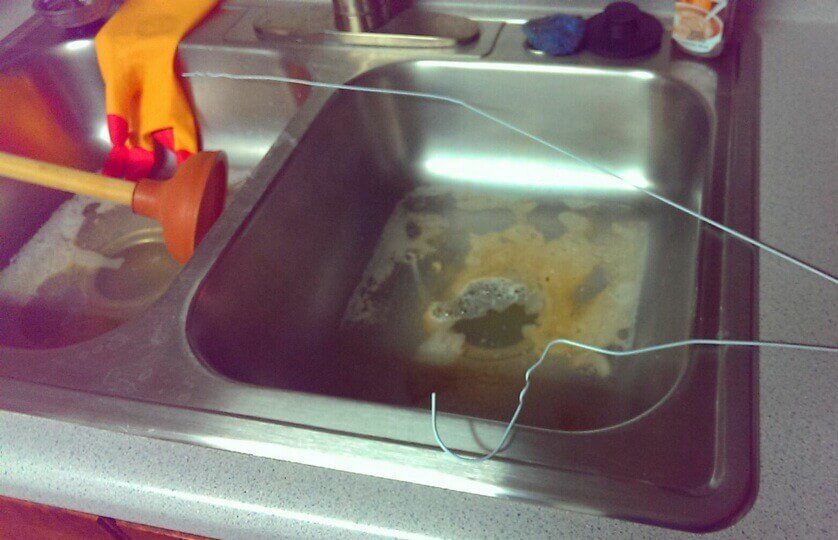
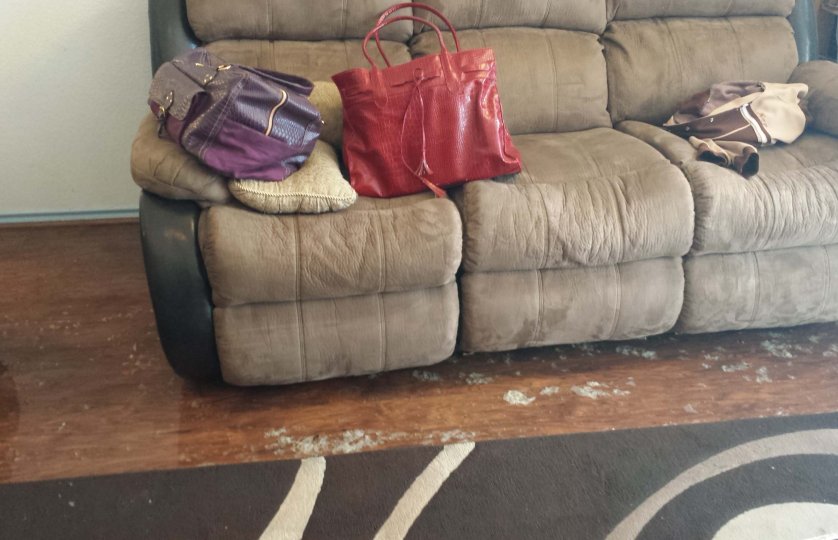
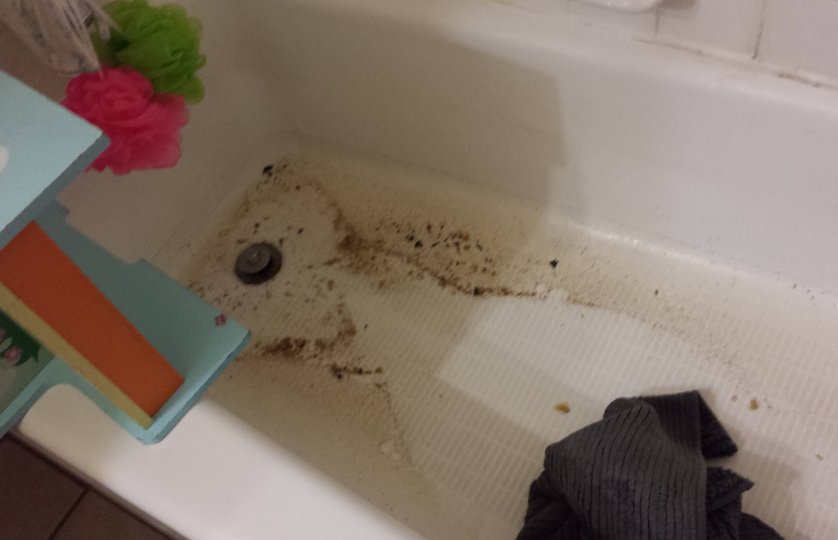
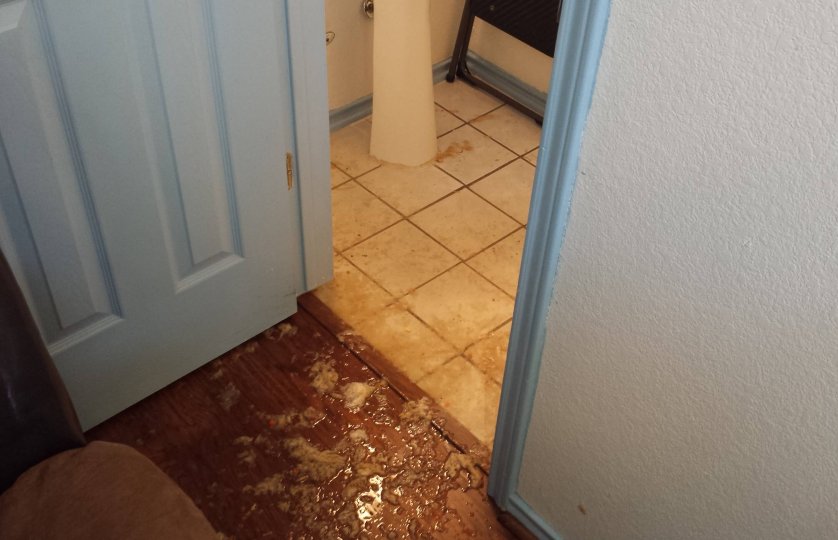
How to Prevent Sewer Back-Ups
Grease and Wipes Clog Pipes!
- Only flush toilet paper and bodily waste.
- Toss wipes (even “flushable) in the trash, not in the toilet. Here’s why
- Put grease in the trash, not in the sink. Collect grease in a can and when full, put it in the trash (Request a FREE lid to secure leftover grease)
- Scrape excess grease and food scraps into the trash
- Keep strainers in your drain to catch food scraps and solids
All drains in your home flow to the same sewer line. Whether you use the toilet or the sink, what goes down flows through the twists and turns in your home plumbing before making its way to the City’s wastewater system. These twists and turns are prime places for waste that didn’t break down to lodge.
Toilet paper is the only product designed to break down fast enough to flow through the pipes freely. Wipes, even those labeled “flushable,” do not breakdown like toilet paper and should never be flushed.
Plumbing problems are often caused by flushing materials that are not flushable. While many products may “flush” they do not dissolve fast enough to flow through the system like toilet paper. They build up in pipes and block your sewer line.
Did You Know - These Don't Go?
No Wipes in the Pipes!
Even those labeled “flushable” – they are too thick and do not disintegrate easily. Wipes are designed to absorb moisture and stay intact when wet, which makes them tough enough to clean with, but too tough to flush.
While toilet paper breaks down in anywhere from a minute to four minutes, wipes can take eight days to dissolve. When flushed, they accumulate and block pipes and pumps.
These paper products are thicker than toilet paper, and do not disintegrate as quickly. They are designed to absorb moisture and stay intact when wet, which makes them great for messes and sniffles, but bad for pipes and pumps.
Unfortunately, current water treatment technology does not remove chemicals found in drugs. When medication is flushed or rinsed down the drain, the dangerous chemicals get pumped into lakes and creeks, contaminating water supplies and wildlife downstream.
How to safely dispose of medication
- At home using the FDA’s MPTS method
- Select pharmacies Drug Disposal location search tool
- Round Rock Police hosts Drug Take-Back Days in the Spring and Fall, check the City’s events page for details.
Additional resources: How to Dispose of Medication
Grease may go in as a liquid, but as it cools it becomes a pipe-clogging wax. Pour leftover grease in a can then toss in the trash. Request a FREE Can it…Don’t Drain It kit by emailing Don’t Stop the Flow. Learn more at Cease the Grease.
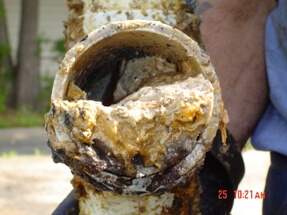
Leftover paint, pesticides, paint remover, and other household products contain chemicals that are hazardous to people, animals, plants, and fish, and should never be poured down the drain, on the ground, into storm sewers, or put out with the trash.
You can bring these products to any of our Household Hazardous Waste (HHW) Collection events. Many of the products are made available to residents at no cost and the rest are disposed of in an environmentally safe manner and the containers recycled.
Feminine hygiene products, such as tampons and sanitary napkins, are designed to absorb liquids instead of breaking down like toilet paper. They are made of fibers that absorb moisture and expand, which prevents safe passage through your pipes. Flushing these products can easily result in a clogged sewer line.
Wastewater System
The Brushy Creek Regional Wastewater System, which consists of two wastewater treatment plants and approximately 45 miles of regional collection lines, handles wastewater treatment for the Cities of Round Rock, Cedar Park, Leander and Austin. The City of Round Rock began overseeing all operations and maintenance of the regional group’s wastewater plants and regional collection lines on Oct. 1, 2018. Austin, Round Rock and Cedar Park share ownership of the regional system; Leander purchases excess collection system capacity and leases treatment capacity. The City of Round Rock also oversees over 450 miles of local collection lines.
The main facility, which is referred to as the East Regional Wastewater Treatment Plant, is located at 3939 E. Palm Valley Blvd., and the West Regional Wastewater Treatment Plant, which was brought back online in 2022, is located in Downtown Round Rock. These plants are permitted by the Texas Commission on Environmental Quality (TCEQ), which is the environmental agency for the state.
Brushy Creek Regional Wastewater Treatment Plant Expansion Project
Lift Stations
The City of Round Rock owns and operates 12 lift stations that pump wastewater to gravity sewer mains or the Brushy Creek Regional Wastewater Treatment Plants.
Wastewater Treatment
The City’s wastewater treatment facilities are covered under two Wastewater Discharge Permits held by the Cities of Round Rock, Cedar Park, and Austin for the BCRWWS. The two treatment facilities, East and West Regional plants, are rated for an average annual flow of 24.5 million gallons per day collectively from the plant’s regional customers. The regional customers include the City of Round Rock, Fern Bluff and Brushy Creek Municipal Utility Districts, and portions of Cedar Park, Leander, and Austin.
Round Rock, TX 78665
512-218-2000
Texas Commission on Environmental Quality
The Texas Commission on Environmental Quality (TCEQ) is the environmental agency for the state.
Contact Us
- Utility Billing: 512-218-5460
- Maintenance/Repairs: 512-218-5555
- Wastewater Treatment Plant Permit: 512-218-2000 | Email


